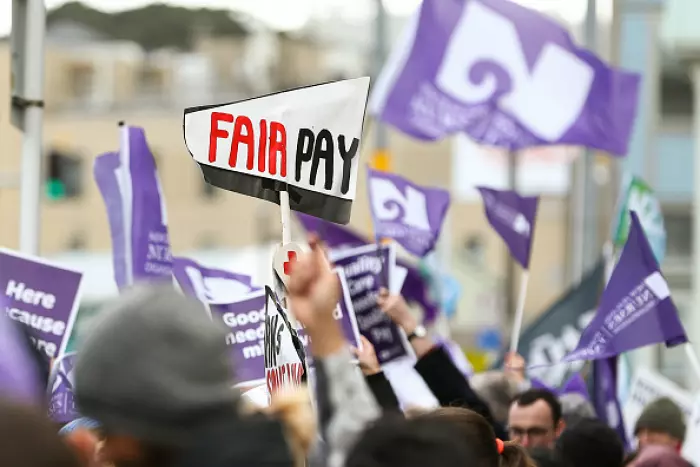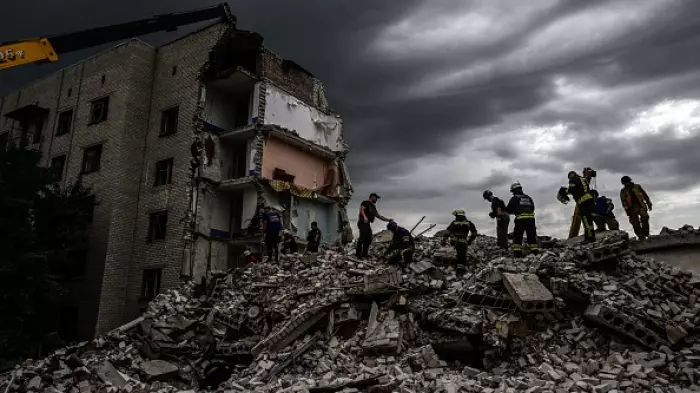Let's look at what's important to New Zealanders.
Inflation/the cost of living has been ranked as one of the top three most important issues by 56% of respondents to the June IPSOS issues monitor survey
This is hardly surprising given the recent hikes in prices, including food. Every one of us feels the impact of this daily, to differing degrees.
Housing came in second at 37%, which is also unsurprising.
Third, at 29%, was healthcare/hospitals. Again, this was expected. Healthcare and access to it have been a key issue at election time for years. The health system touches many people – not just patients, but also family/whanau members and friends.
The striking feature is not these three priorities. Instead, it was how the survey respondents rated which political party performed best on each issue. National was rated as the better political party on the first two, inflation and housing.
Housing's rating would have felt like a kick in the teeth to Labour which, in the 2017 election, successfully highlighted how bad this crisis really was. But, having raised the profile of the housing crisis, it then didn't fix it.
Labour is rated higher than National in how it performed over healthcare/hospitals. You might think Labour should take some relief in this. However, there are two things that wipe out this sense of relief.
The first is that Labour has always been rated the better of the two main parties over health.
Second, as is often said, it's not the results of political opinion polls which are more important – it's the trend.
The trends are telling
In June 202, Labour was seen by 39% to be the better performer, while National lagged behind at 29%. However, this was Labour’s worst rating and National’s best since February 2018.
More striking, however, is that in November 2020, Labour’s performance was rated better by 61% of respondents, compared with a dismal 14% for National. Just 18 months later, Labour has plummeted by 22%, while National has increased its approval rating by 15%.
So, why has there been such a dramatic decline in support for Labour’s performance in health?
In short, this is because Labour didn't stick to two of the most basic ABCs of health systems. If you don’t get these basics right, much of the health system goes to custard.
The first was the main factor behind the pressures in the health system when Labour formed a new coalition government in October 2017.
Throughout that year it became clear that the health system was in crisis, overwhelmingly due to severe workforce shortages, including a dire lack of hospital specialists and nurses.
Health is unavoidably labour-intensive, so severe shortages mean by definition a systems crisis.
Public hospitals are generally expected to have a patient bed occupancy rate of 85%, so they have the capacity to admit unplanned acute or emergency patients.
Increasingly over the years leading up to and during 2017, hospitals were forced to go into what is called ‘Code Black’. That is, they were full and couldn't admit any more patients. The reason for this chaos was a critical shortage of hospital health professionals.
The Association of Salaried Medical Specialists offered, when I was executive director, to work collaboratively to address hospital specialist shortages with the new government. That offer was rejected by then health minister David Clark, based on advice from the director general of health, Ashley Bloomfield.
Instead, Labour ignored the health system’s workforce crisis. The whole problem has been put on an increasingly smouldering backburner.
Labour only responded when it was confronted with industrial action, particularly by nurses. But even then, this issue still remains unresolved. The backburner continues to smoke alarmingly, leaving an unresolved workforce crisis to further deteriorate.
Instead of focusing on addressing the pressures on the health system – the workforce crisis that is preventing it from doing its job for patients as well as it should and could have – Labour’s mind was elsewhere.
So, here is the second health system ABC that has been ignored.
Cultural change
Rather than address the workforce crisis it inherited, Labour instead resorted to restructuring the health system to put it under greater central government control and make it more vertical. This was a fatal error.
It is a universal truth of health systems that restructuring doesn't improve the system. Cultural change is far more effective than structural change in effecting sustainable improvement of systems.
The health system needed a cultural shift towards appreciating workforce shortages and addressing them. Instead, it got static restructuring.
The inevitable and totally avoidable effect was to make sure the health system has been distracted and destabilised. The pressure of severe workforce shortages on the health system has been sidelined, as a result.
The form of restructuring compounded the distraction.
The Labour government opted to marginalise the considerable experience and expertise within the health system. Instead, it opted for its restructuring to be both business consultant-led and done within an unrealistically short timeframe so it wouldn't become an election issue in 2023.
This meant that when Health New Zealand (Te Whatu Ora) came into force on July 1, little had been done to set up how it was to work.
Instead, it had to start from a relatively clean sheet of paper. This means that the pressures on the health system that were put on the back burner after the 2017 election still smoulders on today, even though the new structure touted as the solution is now in place. This is a classic case of building a plane while flying it.
These two failures to address the ABCs of health systems have created huge electoral difficulties for Labour as it goes into an election next year. The problems it inherited in 2017, which it neglected because of its preoccupation with restructuring, and which continue to be neglected by the new structure that was supposed to fix them, will be worse than they were either in 2017 or at the time of the June 2022 IPSOS survey.
Labour's failure of political leadership in health is likely to mean that by the time of next year’s general election, Labour will fall behind National as New Zealanders rate the parties over how they've performed on the management of the health system.
This won’t be because of what National has done to Labour; it will be because of what Labour has done to the health system – and to itself.














